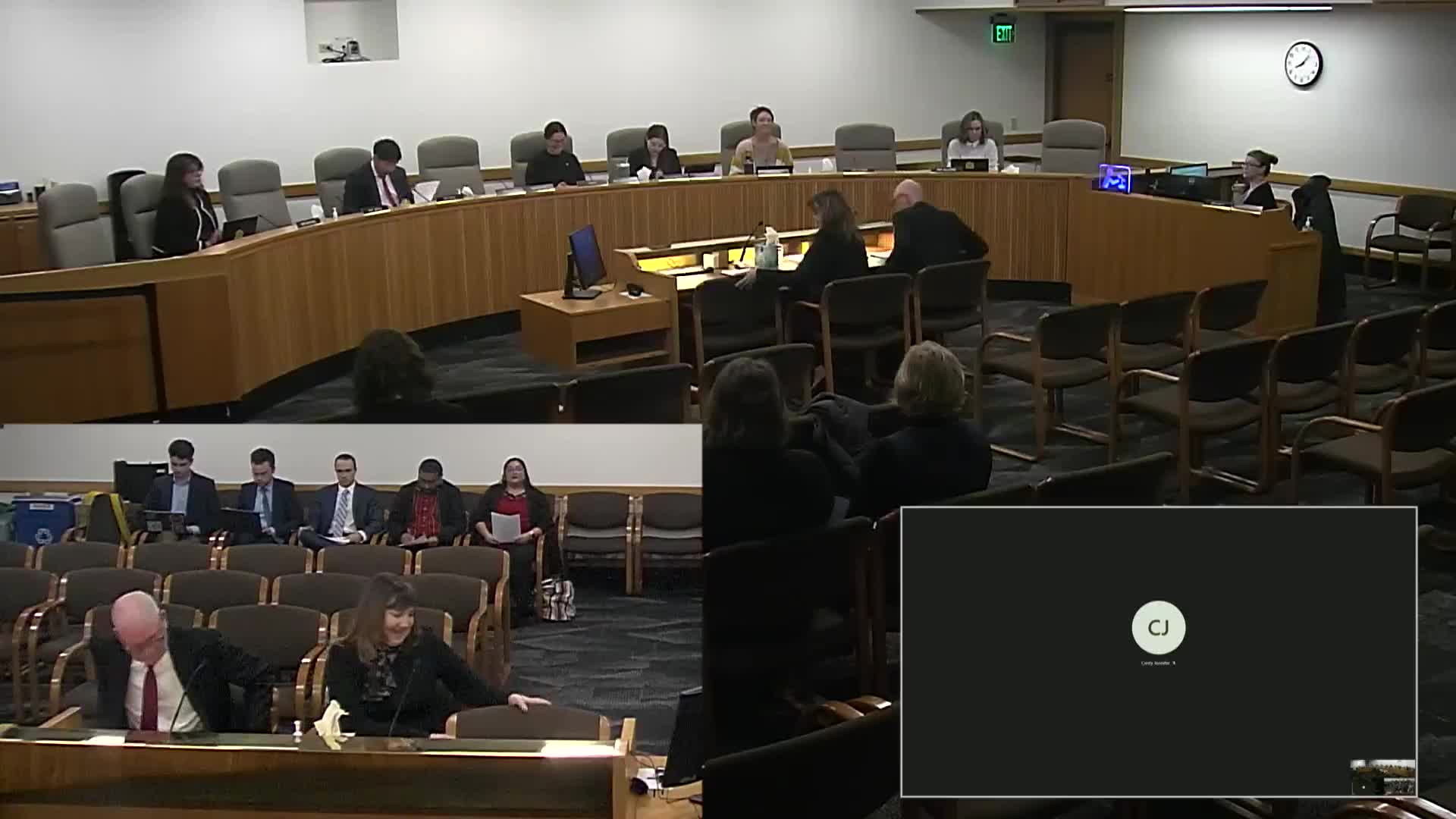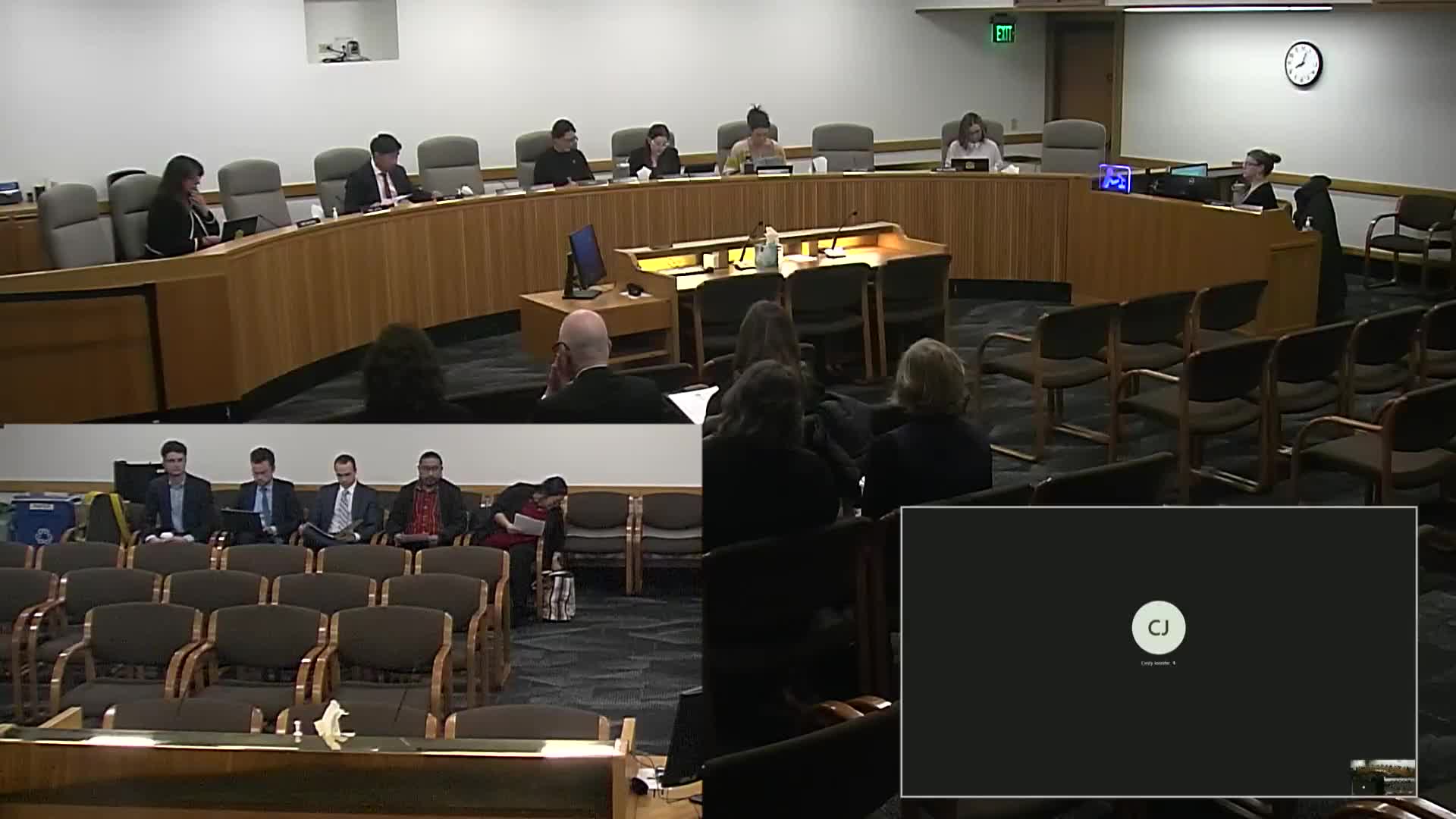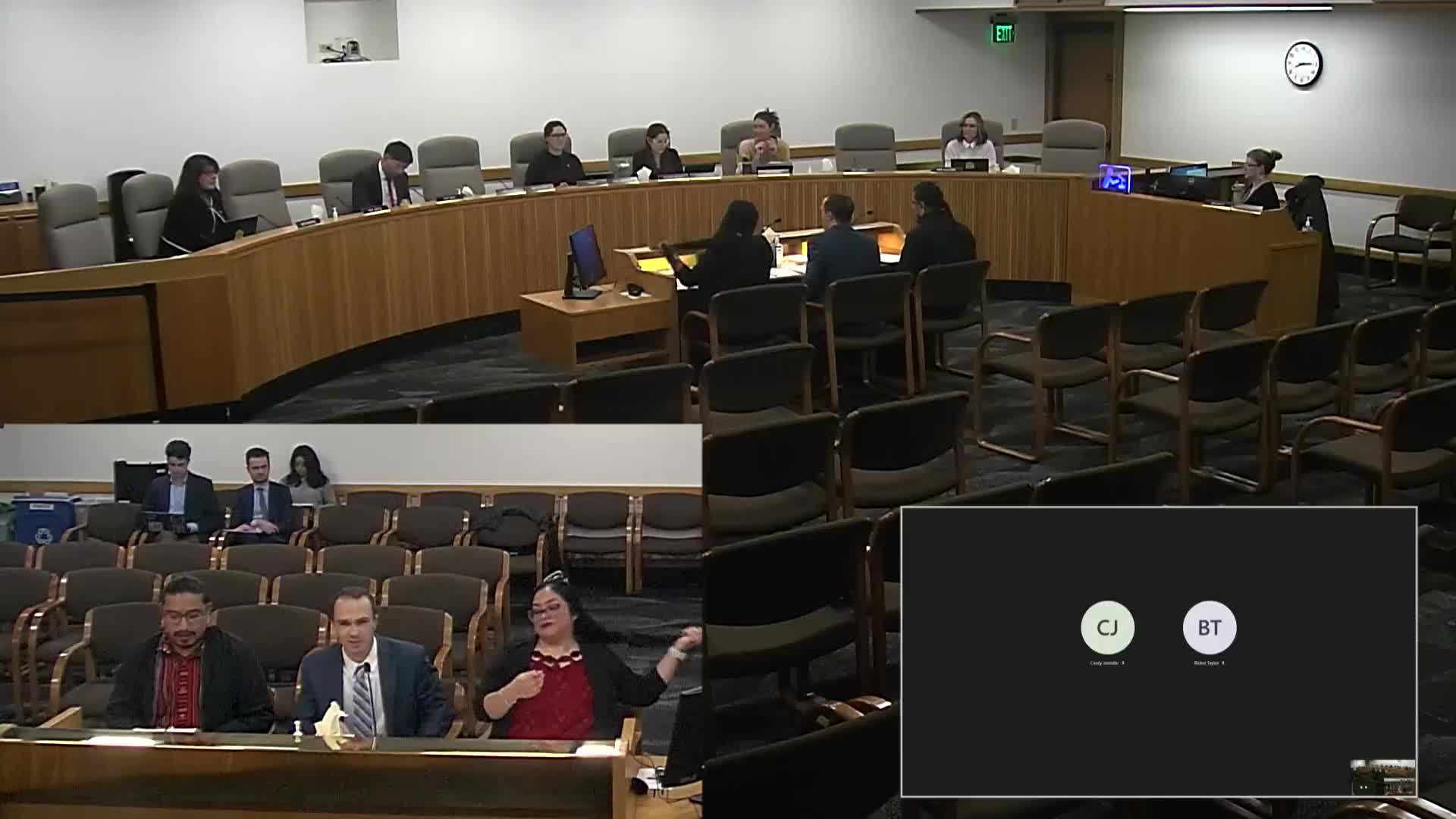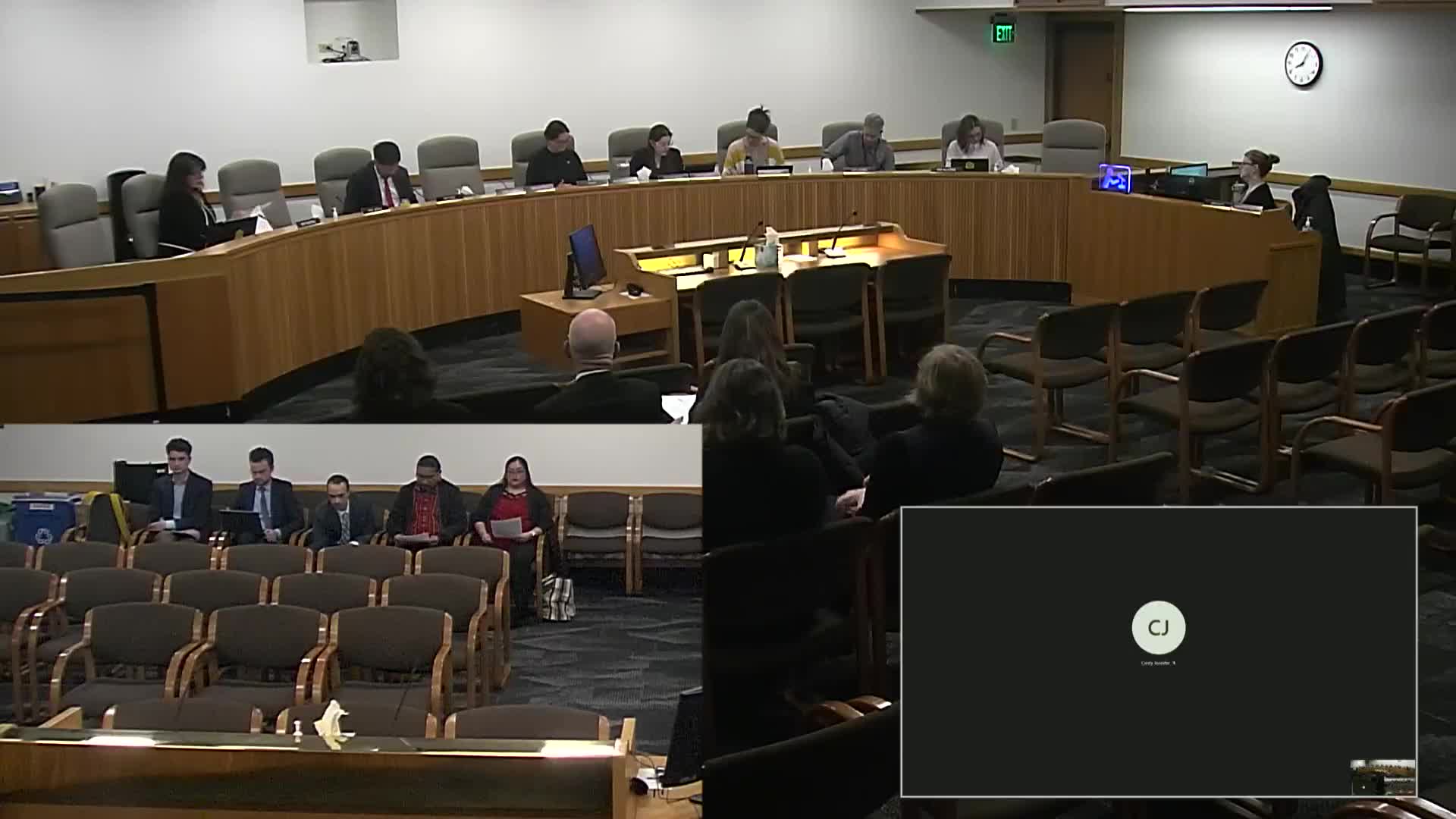Article not found
This article is no longer available. But don't worry—we've gathered other articles that discuss the same topic.

DOJ presents technical updates in public hearing on HB 3,348 to modernize child‑support statutes

Committee adopts amendment to HB 28‑15 to replace tribal advisory committee and create statewide planning alliance

Committee hears testimony on HB 29‑76 to fund indigenous language proficiency evaluations and interpreter workforce

